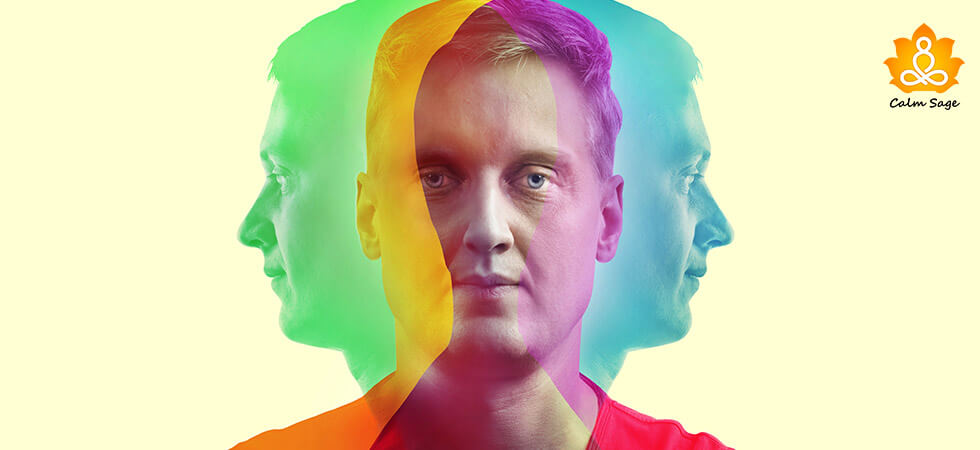Are Your Personality Traits The Symptoms Of Personality Disorders? Find Out Here!

You and I have different ways of feeling emotions, behaving, and even thinking. It’s the different little quirks and traits that make our personalities. These traits shape our thinking, actions, and even our relationship with others. As we turn into responsible adults, these personality traits define who we are.
However, our personality traits can sometimes be more than just our quirks. Many times, the traits we have may indicate a personality disorder.
A personality disorder is a condition that makes it challenging for us to create and maintain healthy relationships, process emotions, and even carry out our daily tasks. When personality traits define who we are, they can influence how we interact with and view others around us.
Nonetheless, the challenges we face might just be because of our personality traits but other times, it can be more than just our traits. How can one know if the argument with their partner isn’t the result of a personality disorder?
Before we take a look at the symptoms that indicate a personality disorder, let’s take a brief look at the personality disorder types:
The Types Of Personality Disorders
Personality disorders can be classified into three clusters:
1. Cluster A
Cluster A personality disorders may look odd to others and one with these personality disorders is likely to have issues during social interactions:
- Paranoid personality disorder
- Schizotypal personality disorder
- Schizoid personality disorder
2. Cluster B
Cluster B personality disorders make it difficult to control one’s emotions and may cause them to act out of character:
- Borderline personality disorder
- Narcissistic personality disorder
- Histrionic personality disorder
- Antisocial personality disorder
3. Cluster C
Cluster C personality disorders are more likely to make one feel anxious and fearful. These disorders may cause one to self-doubt (a lot) themselves and their abilities:
- Obsessive-compulsive personality disorder
- Avoidant personality disorder
- Dependent personality disorder
Now, let’s take a look at the personality disorder symptoms that you should be aware of:
The Symptoms Of Personality Disorder
Among the three clusters of personality disorders, some common personality disorder symptoms can help you distinguish personality traits from disorders. Here are 10 of the most common personality disorders symptoms:
1. Poor Self-Esteem
People with personality disorders have either high or very low self-esteem. In some cases, they may even struggle with self-image. For instance, one minute you might think you’re a kind person but the next, you’ll believe you’re cruel. This often occurs with BPD. In other cases, some people have a sense of grandiosity and believe that they are greater than others. This is often the case with a narcissistic personality disorder.
2. Conflicting Values
If you have a personality disorder then you may struggle with conflicting values. You may behave according to the norm in social situations but may act the complete opposite at home. This mostly occurs with an antisocial personality disorder.
3. Poor Relationships
Personality disorders make it harder for one to maintain healthy relationships as some personality traits may put off others. Your actions may frustrate them and will push them away from you. It can further develop when you constantly run into misunderstandings.
4. Poor Empathy Skills
If you have a personality disorder, then you might have poor empathy skills and may even look insensitive and uncaring in others’ eyes. Some with personality disorders may even lie, without any regard for others’ feelings and to avoid taking the blame for their mistakes on themselves.
5. Poor Boundaries
If you have a personality disorder then you may have a hard time setting and recognizing boundaries. You may hardly care about having and acknowledging boundaries. Also, depending on the personality disorder, you may even have a hard time not overstepping boundaries and in some cases, you may not even be aware that you’re overstepping.
6. Irresponsible Parenting Styles
If you’re a parent with personality disorders then you may have some irresponsible parenting styles. People with personality disorders are overly involved in their children’s loves and might have enmeshed family dynamics.
On other hand, some parents may be even too detached from their children’s lives. In any case, the children are likely to be influenced by their parents’ personality disorders.
7. Difficulty Managing Emotions
People with personality disorders also have difficulty managing emotions. They are prone to angry and emotional outbursts and may even react with frustration if nothing goes according to their wishes. For instance, people with BPD may struggle with mood swings and even lash out at their loved ones to seek attention.
8. Issues With Stress
With a personality disorder, it can be harder to cope with stress and situations that may cause stress and this may lead you to engage in unhealthy coping mechanisms.
For example, if you have BPD, then you may engage in self-harm to manage your BPD symptoms such as stress and feelings of abandonment.
9. Poor Self-Awareness
People with personality disorders have a hard time identifying and even accepting that they have a mental health disorder. With such poor self-awareness, they may constantly deny seeking help and treatment. They are also likely to blame others for their actions and problems.
For instance, someone with OCPD (Obsessive-compulsive personality disorder) may not acknowledge their absorption with schedules and how it’s affecting the other aspects of their life.
10. Poor Professional Skills
Personality disorders can not only make personal relationships difficult to navigate but can also make professional relationships hard to maintain.
If you suspect yourself of having a personality disorder then you’re more likely to argue with your superiors and find it an issue with teamwork. Not only may this but someone with BPD or Schizoid personality disorder find it hard to hold a steady job.
Wrap Up
If you (or your loved one) notice these common personality disorder symptoms, then it’s recommended you speak to a professional counselor for a better understanding of the symptoms and take an official personality disorder test to determine the personality disorder.
To be diagnosed with a personality disorder, you must have met the criteria:
- Having an existing pattern of experiences and behavior that differs from cultural norms
- Impact on thoughts (cognitions)
- Impact on mood
- Impact on interpersonal relationships
- Impact on impulse response
While personality disorders can be quite complex, there is treatment and help available. These disorders aren’t easily diagnosed so it is highly recommended that you speak to a professional for the right diagnosis and treatment.
I hope this article helped you understand the personality disorder symptoms and how to differentiate between personality traits and personality disorders. For more, you can write to us at info@calmsage.com or DM us on social media.
Take Care!




















